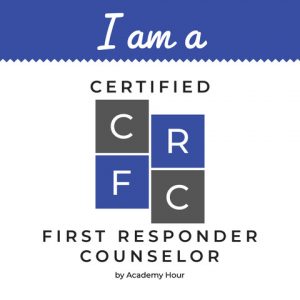
As a leader, you want to be compassionate and empathetic towards others, whether it’s your team members, customers, or stakeholders. While empathy is an essential skill, it’s important to be mindful of the potential for compassion fatigue. In this article, we’ll explore the importance of guarding against and recovering from compassion fatigue as a leader.
What is Compassion Fatigue?
Compassion fatigue is a type of burnout that results from prolonged exposure to the stress or trauma of others. It’s often experienced by caregivers, counselors, and other professionals who work with individuals who are experiencing trauma or difficult circumstances. However, it can also affect leaders who are responsible for the well-being of others, including their employees, customers, and stakeholders.
Compassion fatigue can manifest as physical, emotional, and mental exhaustion, as well as decreased empathy and compassion towards others. Symptoms may include feelings of hopelessness, helplessness, and irritability, as well as physical symptoms such as headaches and fatigue.
Why is it Important for Leaders to Guard Against Compassion Fatigue?
As a leader, your ability to connect with and support others is a critical part of your role. However, if you are not mindful of the potential for compassion fatigue, you run the risk of becoming emotionally exhausted and less effective in that role.
In addition, if you are not able to maintain healthy boundaries and prevent compassion fatigue, you may inadvertently cause harm to those you are trying to help. You may become less empathetic and compassionate towards others, which can result in decreased engagement and motivation among team members, as well as decreased satisfaction and loyalty among customers and stakeholders.
How Can Leaders Guard Against Compassion Fatigue?
There are several steps that leaders can take to guard against compassion fatigue and maintain their well-being while supporting others:
- Practice Self-Care: The first step in guarding against compassion fatigue is to take care of yourself. This includes the “pillars” of well being including getting enough sleep, eating a healthy diet, and engaging in regular exercise. It also means taking intentional breaks as needed and engaging in activities that promote relaxation and stress relief, such as meditation or spending time in nature.
- Set Boundaries: As a leader, it’s important to set clear boundaries around your time and energy. Boundaries are what makes your job sustainable. This may mean saying “no” to requests that are outside of your scope of responsibility or that you don’t have the capacity to take on. It may also mean delegating tasks to others or finding ways to streamline your workload. Sometimes this is easier said than done. Working with a counselor or coach can help you navigate this.
- Develop a Support System: Having a support system in place can help you to cope with the emotional demands of your role. This may include seeking support from colleagues, mentors, or friends and family members. It may also mean seeking out professional counseling if needed.
- Practice Mindfulness: Mindfulness is the practice of non-judgmental, present-moment awareness. Basically, it gives your brain a break from trying to put out a multitude of “forest fires.” By practicing mindfulness, you can become more aware of your own emotional state and better able to differentiate between your emotions and those of others. You can also develop the ability to step back and take care of yourself when needed, rather than becoming too emotionally invested or overwhelmed by others’ emotions.
- Engage in Self-Reflection: Regular self-reflection can help you to identify signs of compassion fatigue before they become detrimental. This may include journaling, meditation, or other forms of self-reflection.
Compassion fatigue is a very real and challenging issue for leaders, but it’s not insurmountable. By being aware of the signs of this kind of burnout and taking proactive steps to prevent and heal from it, leaders can continue to serve their teams and communities with empathy and compassion.


